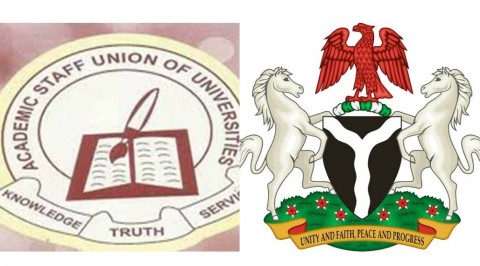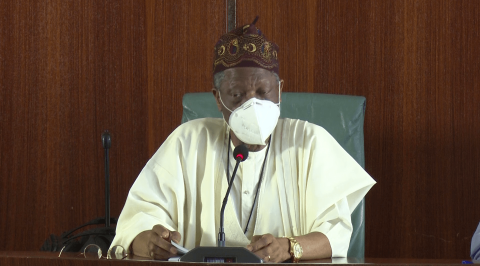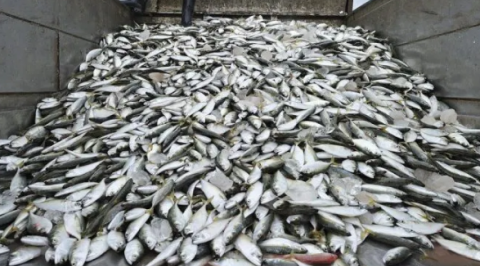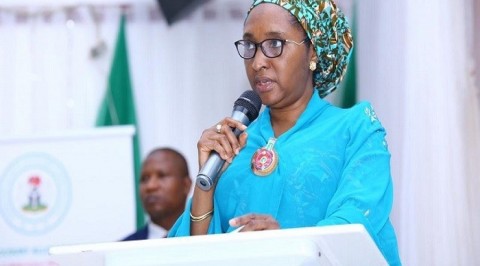Fuel Scarcity: FG Stopped Paying Marketers Since September – IPMAN
The Independent Petroleum Marketers Association of Nigeria (IPMAN) has revealed that the fuel scarcity being experienced in the country was due to the federal government’s refusal to pay its members for imported products since the third quarter (Q3) of 2013, forcing them to stop further importation.
This was disclosed yesterday in Abuja by IPMAN national president Aminu Abdulkadir while briefing journalists during the Central Working Committee (CWC) meeting of the association.
He said its members were now dependent on imports by the Nigerian National Petroleum Corporation (NNPC).
According to Abdulkadir, marketers are being owed part-payment of imports made in Q3 2013, while they have not been paid at all for imports made in Q4 2013 and Q1 2014, a situation that has forced them to stop importation as they have gone insolvent.
He explained that there is presently a supply gap because the template of the Petroleum Products Pricing Regulatory Agency (PPPRA) only allow the NNPC to import 50 per cent of fuel consumed in the country while marketers, of which IPMAN members account for 87 per cent, import the remaining 50 per cent.
He said: “There are problems of payments and the way out is for the Ministry of Finance to act as quickly as possible. There is nobody that will do a job that is not being paid that will continue. The only way out is for the Ministry of Finance to commence payment of part of last year Q3, Q4 and this year Q1.
“With that the NNPC pressure will be reduced because, from the design of the template at the PPPRA, NNPC can supply 50 per cent of the product into the country;the rest of us marketers augment the balance of 50 per cent.”
While denying that products’ diversion was responsible for the scarcity, Abdulkadir said “all are legal diversion; if you make product available to Abuja and you have not made it available to Kano, Lokoja and Kaduna are they not Nigerians or are they coming to queue in Abuja?”
He, however, assured that its members have been instructed to prudently distribute the little product NNPC is injecting, adding: “We have done our best. Let them pay Q4 and Q1, then marketers will have the solvency to import and augment what NNPC is bringing.”
On whether deregulation is the solution to the perennial fuel scarcity, Abdulkadir said, “I will not in my correct senses ask government to go on full deregulation now; what suits our country is phased deregulation, not abruptly; it will not work.”
Situation ‘under control - Alison-Madueke
With long queues of vehicles piled up at petrol stations across the country for over two weeks, minister of petroleum resources Mrs Diezani Alison-Madueke still insists that the situation is “under control”.
The oil minister stated Tuesday that there was no plan to increase the official pump price of petrol. She declared that “over the next week we will flood the country with petroleum products”.
Alison-Madueke spoke to newsmen on the side-lines of the petroleum ministry’s 2013 budget appraisal/2014 budget defence before the joint House of Representatives committees on Petroleum Resources Upstream, Downstream and Gas.
She said the petroleum ministry through its relevant subsidiaries will be going after filling stations that have diverted and hoarded petrol.
Alison-Madueke: “Quite early it (fuel scarcity) has been taken under control in areas like Lagos. But, as I said when I went round stations in Lagos I personally talked to petrol station owners and also to consumers who were in the stations so that they will tell me exactly what they went through and where they found those pockets of scarcity and how bad it was.
“It was quite obvious that it could be caused by a number of things that we are looking into. There is some supply hitch which we are looking into. There is also diversion which was quite clear. There was an element of hoarding as well. And while we are trying to get to the bottom of who diverted what at the same time in terms of supply, we are trying to ensure that, over the next week, we flood the country with petroleum products.
“There was also some strange rumour that the Ministry of Petroleum Resources was going to announce an increase in the pump price of petrol which also helped to instigate some of the hoarding and some of the diversion. And I have said categorically that we have no plans to increase the pump price of petrol anytime in the near future.
“On the issues of supplies, more and more PMS is being brought in and over the next week or two we would flood the country with PMS. And in terms of the diversions, we would try and ensure that whichever stations we find to have actually diverted or hoarded produce, we will take them up and implement punitive measures no matter which stations they are, whether they are NNPC stations or any other stations, independent or otherwise; we will take them up to the full extent of the law.”
Petrol marketers and tanker drivers have blamed the shortfall on a delay in the approval of fuel import permits by the NNPC.
The few stations that have fuel have been reported to sell at between N100 and N150 per litre — well above the official subsidised price of N97.
‘FG may still privatise refineries’
In a related development, Alison-Madueke yesterday dropped a hint indicating that the federal government may still go ahead to privatize the country’s refineries.
This is even as the rehabilitation of the refineries is still ongoing at the moment.
The oil minister made the disclosure when she appeared to defend her ministry’s 2014 budget before a joint Senate Committee on Petroleum Upstream, Downstream and Gas.
She declared that the government should not be in the business of running refineries or any major infrastructure, adding that the best way forward is for the government to privatize the refineries.
“On privatization of refineries, let me put it this way: the federal government is continuing the rehabilitation programme, up till the time of privatization.
“At least to some extent — as we know the unions fought us strongly and so we stepped back for some time to look at it again — but I have always said that the government should not be in the business of running refineries. I don’t think it should be, or any major infrastructure. I think the best way forward is the privatization of our refineries; rehabilitation continues, as it was continuing at the time.
“The unions stopped us. It was clear at the time we met with the unions they were not comfortable with the privatization and, as a result of our negotiations that time, we stand down on the privatization for this period in time.
“We are still with the ongoing discussion on that but the rehabilitation side of it never stops at any point even when we put forward the issue of privatization of the refineries.”
On emphasis of local content refining she said: “In terms of local refining content, you ask whether the government policies — investment in the downstream sector, I think; we have some information on some of the projects going on. It was to do with the policy framework on deregulation to enable implementation of the programme in a manner of undue attacks from the citizenry.
On why there was no budgetary allocations for the frontier exploration this year, the minister explained that it was not in the budget because the exploration is under the NNPC and not her ministry: “In terms of the frontier exploration agency, it is definitely still there and it is funded. It is not under the ministry but under NNPC; that’s why it doesn’t appear there. It’s a unit under NNPC. And in 2013 because of the heightened security issues in those areas, we were actually not able to do as much as we have done in the past, unfortunately. But, in 2014 we hope it will be a better year for us in frontier exploration.”
Speaking to Senate correspondents shortly after the defence, she reiterated that the government has no intention to increase the price of fuel and threatened that diverters and hoarders of petroleum products will be made to face the full wrath of the law.
“I won’t call it a recurring PMS shortage in the country. I think the media can testify to the fuel shortage for some time now. So I will hardly call that recurring, as if it has been happening for the past six months. It is not the case, so it has a lot to do with a number of issues.”
FG is planning to increase pump price – APC
The All Progressives Congress (APC) has accused the PDP-led federal government of acting out a clandestine script to increase fuel prices through the back door, saying the ongoing nationwide fuel scarcity may have been induced to make higher fuel prices a fait accompli for Nigerians.
In a statement issued in Lagos on Tuesday by its interim national publicity secretary, Alhaji Lai Mohammed, the party said the fact that the scarcity has persisted despite the claims and counter-claims by the government and the oil marketers, and the measures purportedly taken by the government to ameliorate the situation, is the clearest indication of official deception.
‘’The more fuel trucks the government claims to have sent to major cities to ease the scarcity, the more difficult it is for Nigerians to obtain the product. This is an old trick and Nigerians should not be hoodwinked into believing there will be no increase in fuel prices.
“The only deterrent is to let the government know Nigerians will resist any price hike.
‘’The truth is that with the elections approaching, the PDP-led FG is desperately seeking all possible avenues to raise funds for its usual electoral shenanigans, and increasing fuel prices has always been an attractive option to the government, not minding what the impact will be on the same people it has impoverished since 1999,’’ it said.
source Leadership





